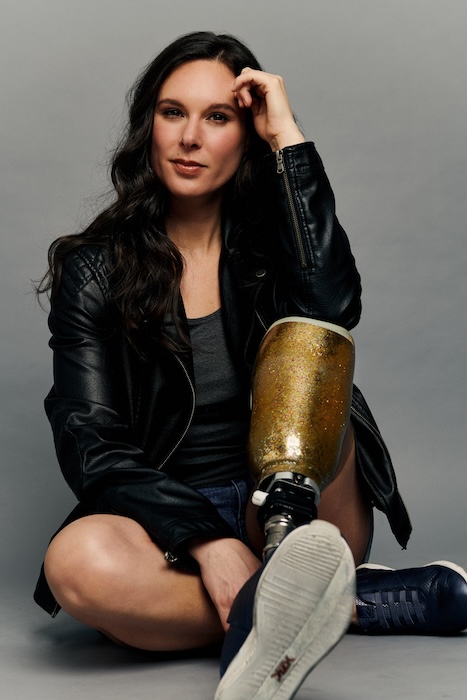Rachel Handler’s short film, Don’t Take This the Wrong Way, shot in Beacon with local actors, is an entrant for the 2025 Easterseals Disability Film Challenge, and is part of an awareness campaign through Monday (April 21). See dub.sh/handler-video.
What inspired the film?
During a radio interview, the host said: “You use the word disability a lot, but I don’t like that word. I prefer challenge, because we all have some sort challenge.” It bothered me because I don’t see my disability as a challenge. Disability is so much more than that. It can be a beautiful part of life. That experience got me thinking about how people without a visible disability don’t have to deal with being at the grocery store and getting unwanted stares and comments and thinking about how that’s going to impact their day. People ask things and they don’t realize, “Maybe what happened to her was the worst day of her life and she doesn’t want to talk about that.”
You’ve made comedies, heartwarming films and documentaries. But this one had to be a thriller, according to the rules. How did you navigate that?
I never thought I would write a thriller, although I love psychological thrillers. I told our director and our cast and crew that I had the hardest time staying in character because I was having so much fun. It was a joyful experience, despite the dark and brutal story. I tried to keep in the comedic moments, because it’s more entertaining to catch you off guard and make you laugh when you don’t want to.
Why did you film in Beacon?
Our director of photography, Robert Featherstone, has lived in Beacon for many years. So when we wanted to shoot in a grocery store, he said, “I shop in Key Food all the time. I know the owners. Let me ask them.” Thank goodness they said yes. Shooting in Key Food was such a dream. Everyone was so accommodating and welcoming. And we got a nice discount from Healthy in Color for lunch.
Do other people who worked on the film have disabilities?
My friend Frankie [Francis Pace-Nunez], whom I met at Hudson Valley Shakespeare, is a neurodivergent actor. I was excited to have him on board. Some people on the crew didn’t realize they had a disability until we did our access check-in — at the top of the day, you ask for safety reasons if anyone has access needs, like, “Is your back hurting and you need to sit down more often?” Filmmaking can be physically demanding.
During the access check, some people said, “I never realized, but I guess I have a disability.” One person is blind in one eye. If you approach her from the left, she might not see you. Our director has ADHD [attention-deficit/hyperactivity disorder]. She never identified as someone with a disability, but ADHD is covered under the [federal] Americans with Disabilities Act. We’re hoping that more people get comfortable self-identifying so that the perspective shifts to seeing the strengths in disability rather than the flaws.
What do you hope people take away from your film?
I hope that disabled people feel seen and validated in their frustrations. I hope that non-disabled people realize, “Maybe I don’t have to say everything out loud that I’m thinking. Maybe when someone is in the grocery store who looks different, I don’t have to compliment them,” or what you might think is a compliment. I’ve had people say, “Oh, I hope you don’t take this the wrong way, but you walk so well, I wouldn’t have known about your leg if you just covered it.” They think that’s a compliment, but I don’t want it.


